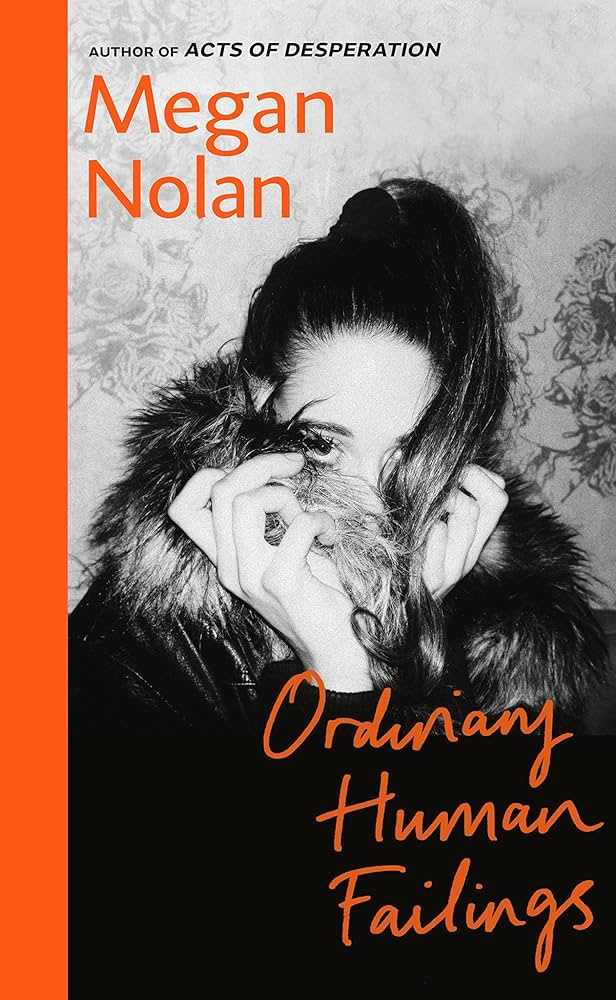Ordinary Human Failings, Megan Nolan
‘The novel covers ordinary human failings of varying severity’
This second novel by Megan Nolan exceeded my expectations. While I enjoyed her debut, Acts of Desperation, I was ‘refuse-to-hang-out-with-anyone-until-I’m-finished’ level of engrossed with Ordinary Human Failings.
The plot is morbid: Mia, a very young child, is found dead in a council estate in London, and the evidence suggests that the murder was committed by the 10-year-old child of a family of Irish immigrants, Lucy Green. A fiendish journalist with little regard for the humans behind the scoop picks up the story and begins a feverish attempt to sensationalise every element of the occurrence so that his readers, who he dubs ‘peasants’, are suitably satisfied by the juicy lives of other ‘peasants’.
The undercurrents of the novel, however, are arguably more morbid than the plot – what led to this death? This question is largely what the novel centres around, rather than the crime itself, though this book is so much more than just a whodunnit. Although I’ve read criticism of this internal focus, I think this is a misinterpretation of what’s going on in this deeply mature novel which depicts a crime as a by-product of the complex lives it affects.
The novel covers ordinary human failings of varying severity, including heartbreak, adultery, teenage pregnancy, death, emotional abuse, neglect, alcoholism, depression, the role of the media, ambition, or lack thereof, and failure… and those are just the obvious themes. What chance did Lucy stand with all these factors keeping her family too busy to take care of her? But more importantly, did Lucy even commit the crime she is accused of?
Editorial Picks




